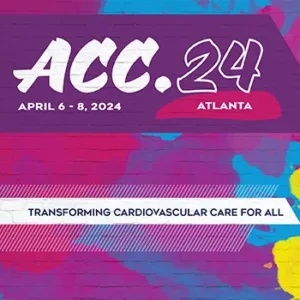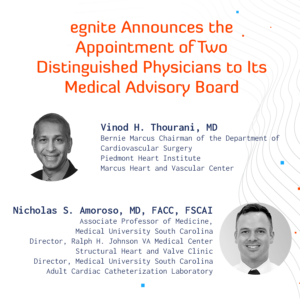
“These results further underscore the poor prognosis associated with untreated aortic stenosis of any severity and provide meaningful insights for the management of this patient population.”
Philippe Généreux, MD, FACC
Director of the Structural Heart Program of Morristown’s Gagnon Cardiovascular Institute and lead author of the study.
Director of the Structural Heart Program of Morristown’s Gagnon Cardiovascular Institute and lead author of the study.
BACKGROUND
- Previously, we described a novel aortic stenosis (AS) staging classification based on the extent of extra-valvular cardiac damage before aortic valve replacement (AVR)1
- Specific, well-validated echocardiographic parameters were used to stratify patients into 5 different disease stages1
- The extent of cardiac damage was strongly associated with mortality and adverse events 1 and 2 years post-AVR1,2
- Worsening cardiac damage at 1 year post-AVR increases the risk of death or heart failure rehospitalization at 2 years2
- The extent of cardiac damage before AVR and its change at 1 year post-AVR were strong determinants of quality of life post-AVR3
OBJECTIVE
- In summary, the extent of cardiac damage has been shown to be associated with worse outcomes for patients with severe or moderate AS
- However, data for untreated patients across all degrees of AS severity are lacking
- We aimed to determine the impact of the extent of cardiac damage across all degrees of AS severity
METHODS
- 1,713,421 echocardiograms representing 1,115,594 patients from 24 institutions with appropriate permissions (egnite Database: egnite, Aliso Viejo, CA, USA)
- All deidentified datasets used were compliant with Health Insurance Portability and Accountability Act
- Patients >18 years of page with native AS were classified by AS severity (mild, moderate, severe per Natural Language Processing) and cardiac damage staging
- 2-year mortality was examined using Kaplan-Meier estimates, with censoring at treatment date for AS/last clinical encounter, and compared using the log-rank test
RESULTS
- N = 1,115,594 patients represented from egnite Database
- 1,713,421 echocardiograms documented from egnite Database
- n = 820,345 patients with assessment of AS (including severity) available
- n = 99,155 patients with diagnosis of AS of mild or greater severity
- n = 28,551 patients >18 years of age with sufficient and appropriate data for staging
- AS severity distribution:
- N = 28,551 patients with untreated AS
- n = 13,027 (45.6%) Mild AS
- n = 8,650 (30.3%) Moderate AS
- n = 6,874 (24.1%) Severe AS
- N = 28,551 patients with untreated AS
- Staging of cardiac damage among patients with AS:
- N = 28,551 patients with untreated AS
- n = 3,781 (13.2%) Stage 0
- n = 3,754 (13.1%) Stage 1
- n = 9,531 (33.4%) Satge 2
- n = 4,650 (16.3%) Stage 3
- n = 6,835 (23.9%) Stage 4
- N = 28,551 patients with untreated AS
- Through two years, all-cause untreated mortality was generally greater with each further stage of cardiac damage, and incrementally greater hazards for mortality were observed for each stage of cardiac damage as well as for greater degrees of diagnosed AS severity
CONCLUSIONS
- The present study indicates that the extent of cardiac damage has important prognostic implications across all degrees of AS severity and helps to further validate the proposed staging classification in a large real-world dataset
- These findings highlight the importance of identifying and monitoring the progression of cardiac damage among patients with all degrees of AS severity and point towards potential targets for treatment, whether earlier intervention of AS or intensification of adjunctive therapy, to prevent or treat cardiac damage
References
1. Genereux et al. Eur Hearl J 2017;38(45):3351-3358.
2. Genereux et al. J Am Co/I Cardio/ 2022;80:783-800.
3. Genereux et al. J Am Coll Cardio/ 2023;81 ·743-752.
Généreux P, Sharma RP, Cubeddu RJ, Kapadia SR, Thourani VH, Makkar RR, Cohen DJ, Dobbles M, Barnhart GR, Leon MB, Gillam LD. Prognostic impact of cardiac damage across the spectrum of aortic stenosis severity: Results from a large real-world database. Podium presentation at: American College of Cardiology 72nd Annual Scientific Session Together with World Congress of Cardiology; March 4-6, 2023; New Orleans, LA.



